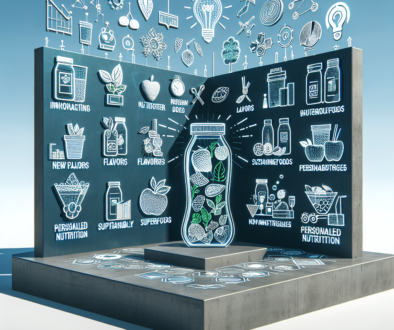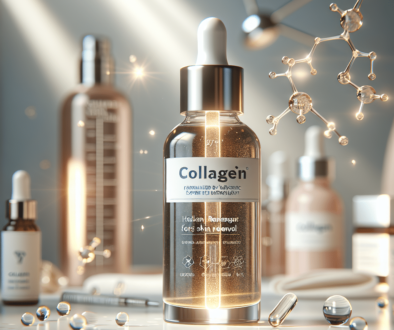Study On The Biocompatibility Of Polylactic Acid-Polyglycolic Acid/Type I Collagen Composite Scaffold
Keywords
Tissue Engineered Vagina, Polylactic Acid-Polyglycolic Acid, Type I Collagen, Vaginal Epithelial Cells, Biocompatibility
Abstract
Objective To observe the biocompatibility of poly-lactide-co-glycolide (PLGA)/type I collagen composite scaffold and explore its feasibility as a tissue engineering vaginal scaffold. Methods Polylysine-coated PLGA was placed in an acetic acid aqueous solution containing 0.25% type I collagen to prepare a PLGA/type I collagen composite scaffold. The vaginal tissue of 10- to 12-week-old female SD rats was taken, vaginal epithelial cells were isolated and cultured using enzyme digestion method, and the second-generation cells were taken for experiments. The composite scaffold extract was taken to culture vaginal epithelial cells and the cytotoxicity of the material was observed. Vaginal epithelial cells were co-cultured with the composite scaffold for 48 hours (experimental group), and the cell adhesion rate was detected; cells were seeded on the simple PLGA scaffold as the control group. The cell-scaffold complex was implanted under the skin of SD rats, and the cells were harvested at 2, 4, and 8 weeks for HE staining and immunohistochemical staining to observe the growth of cells on the scaffold. The cell-scaffold complex was transplanted into the vagina of 6 SD rats whose vaginal tissue was removed. The vaginal growth was observed 3 and 6 months after surgery. The vaginal tissue was taken for histological observation 6 months later. Results Rat vaginal epithelial cells grew and proliferated well in the leaching solution of PLGA/type I collagen composite scaffold material, and the cytotoxicity was level 1. The cell adhesion rate of the experimental group was 71.8%¡À9.2%, which was significantly higher than the 63.4%¡À5.7% of the control group (t=2.195, P=0.005). Vaginal epithelial cells can adhere and grow on the PLGA/¢ñ collagen composite scaffold material. After 2 weeks of subcutaneous implantation in rats, cells grew and proliferated in the pores of the scaffold, and fibroblasts grew; 1 to 3 layers of epithelium were formed on the surface of the scaffold material after 4 weeks. ; After 8 weeks, the scaffold material was partially degraded, the epithelial layer increased and was arranged in a polar manner, and keratin immunohistochemical staining was positive. Three months after the orthotopic transplantation of the cell-scaffold complex, the rat vaginal mucosa was pink and shiny, and most of the scaffold material was degraded; at 6 months, the vagina was approximately 1.2 cm deep, with no obvious stenosis, and the appearance of the vaginal mucosa was similar to that of a normal vagina. The mucosa has fewer folds. Histological observation shows that the epithelial layer is not significantly different from that of the normal vagina. The number of nail-like protrusions is visible in the basal layer, which is less than that of the normal vagina. Keratin immunohistochemical staining is positive. Conclusion The PLGA/type I collagen composite scaffold has good biocompatibility and can be used as a scaffold material for constructing tissue-engineered vaginas.
For further information of this article and research, feel free to contact our team for asssitance.
Original research was done by Zhang Mingle, Li Yanan, Jia Jingfei, Chen Yexing, Huang Xianghua
About ETChem
ETChem, a reputable Chinese Collagen factory manufacturer and supplier, is renowned for producing, stocking, exporting, and delivering the highest quality collagens. They include marine collagen, fish collagen, bovine collagen, chicken collagen, type I collagen, type II collagen and type III collagen etc. Their offerings, characterized by a neutral taste, and instant solubility attributes, cater to a diverse range of industries. They serve nutraceutical, pharmaceutical, cosmeceutical, veterinary, as well as food and beverage finished product distributors, traders, and manufacturers across Europe, USA, Canada, Australia, Thailand, Japan, Korea, Brazil, and Chile, among others.
ETChem specialization includes exporting and delivering tailor-made collagen powder and finished collagen nutritional supplements. Their extensive product range covers sectors like Food and Beverage, Sports Nutrition, Weight Management, Dietary Supplements, Health and Wellness Products, ensuring comprehensive solutions to meet all your protein needs.
As a trusted company by leading global food and beverage brands and Fortune 500 companies, ETChem reinforces China’s reputation in the global arena. For more information or to sample their products, please contact them and email karen(at)et-chem.com today.



